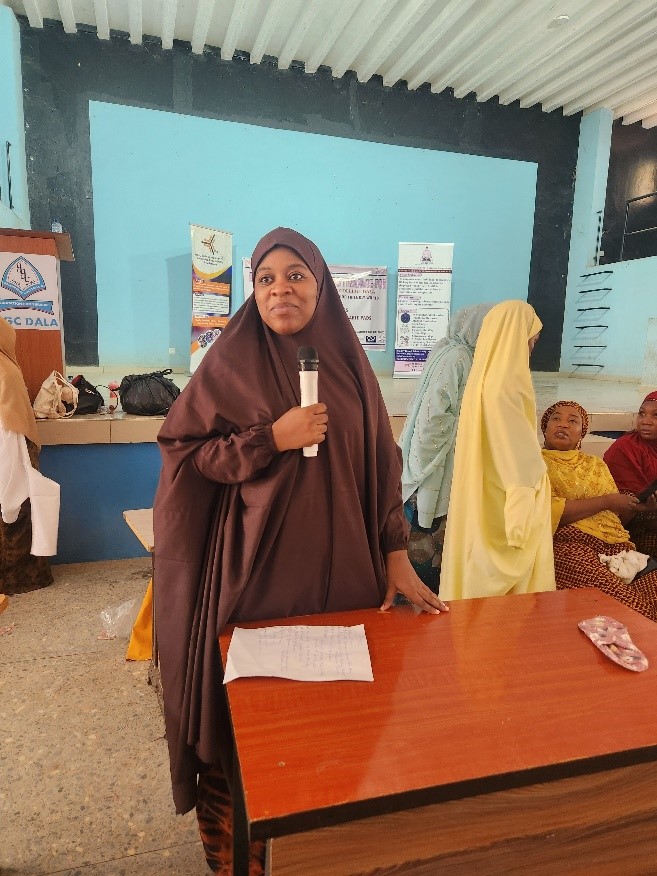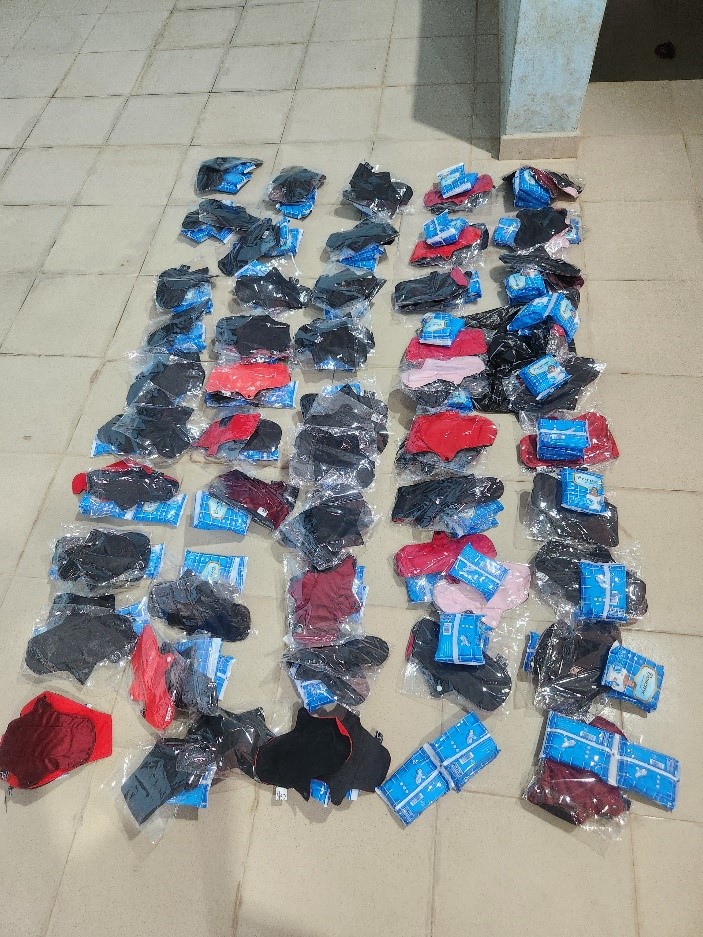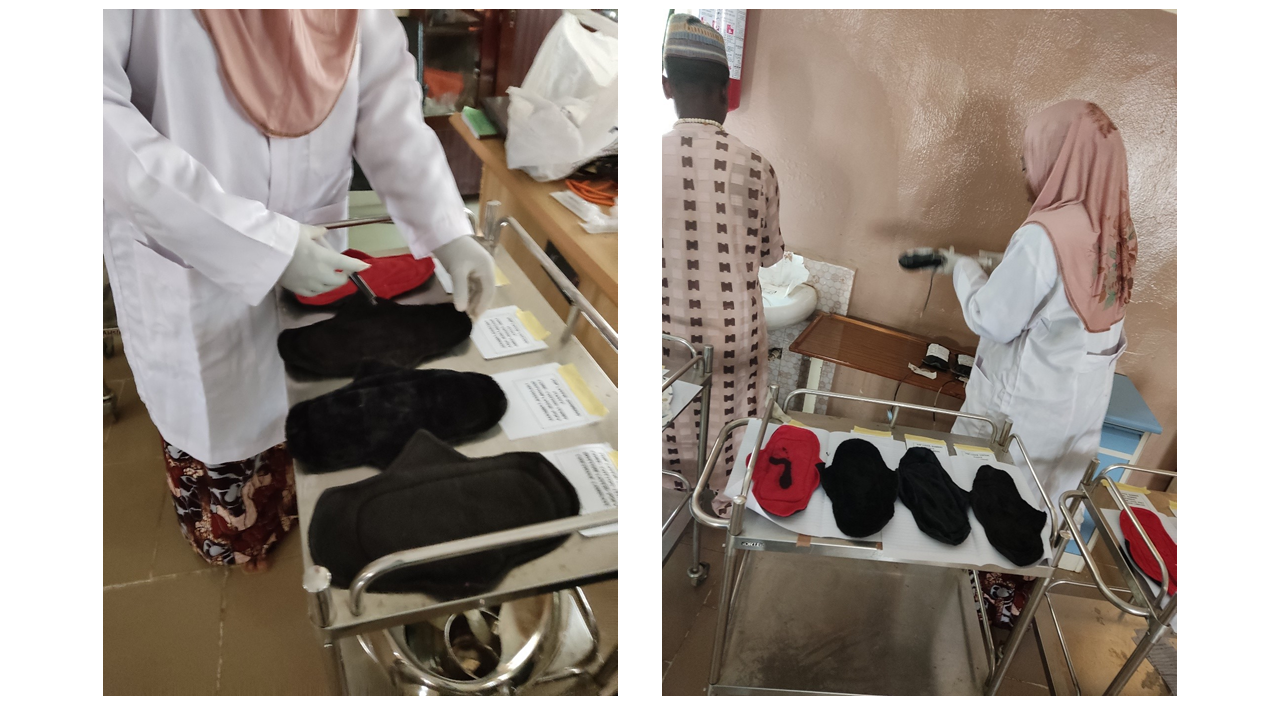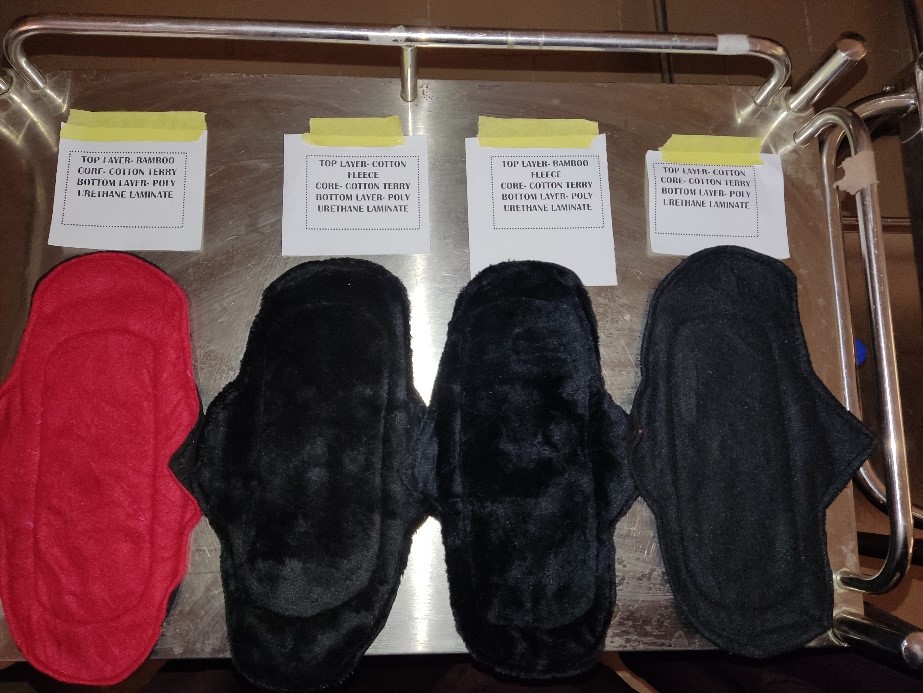Nigeria Research Project
Winner: Amina Suleiman Rajah, Research Midwife at Bayero University, KanoBio: "Amina Suleiman Rajah, RN, RM, RNE, RBPN, BNSc, PGDE, MSc, is a dedicated and passionate professional in the field of nursing and healthcare. With a strong commitment to improving healthcare outcomes, she has made significant strides in nursing education, research, and clinical practice.Amina's academic journey began at Bayero University, Kano, where she completed her Bachelor of Nursing Science with a First Class (CGPA-4.51), showcasing her exceptional dedication to academic excellence. Building on her foundation in nursing, she expanded her expertise, obtaining certifications as a Registered Nurse, Registered Nurse Educator, Registered Midwife, Registered Burns and Plastic Nurse and Post Graduate Diploma in Education (PGDE), further enhancing her capabilities as an educator and practitioner. Project: From Disposables to Sustainability: A Study on Innovating Menstrual Care via Reusable Pad Solutions in Kano, Nigeria.This research project focuses on the integration of reusable menstrual pads as an innovative and sustainable solution to address critical healthcare gaps in menstrual care, particularly among marginalized populations in Kano, Nigeria. The study aims to investigate novel eco-friendly materials, assess safety and hygiene aspects, examine the effectiveness of reusable pads, explore psychological and emotional effects, and identify economic opportunities through reusable pad entrepreneurship. The research aligns with healthcare priorities of underserved communities, offering a sustainable and cost-effective alternative to disposable pads. By addressing unhygienic menstrual practices and empowering women with choices, the initiative contributes to global movements for eco-conscious healthcare practices and women's health equity. The project is poised to bridge a significant gap, fostering tangible improvements in health outcomes and the quality of life for women in the target population. |
Project Update June 2024This research project aims to address critical healthcare gaps in menstrual care, particularly among marginalized populations in Kano, Nigeria. The initiative is driven by the prevalence of unhygienic menstrual practices due to limited access to disposable pads, financial difficulties, and lack of awareness, leading to elevated infection risks and compromised wellbeing. By exploring the integration of reusable menstrual pads, the study offers a sustainable and cost-effective alternative that reduces health risks and empowers women with choices in menstrual care. Project Significance The project aligns with the healthcare priorities of underserved communities, responding directly to their needs. It champions women's health equity and supports global movements toward eco-conscious healthcare practices. The integration of reusable menstrual pads has the potential to significantly enhance nursing practice, healthcare delivery, and patient outcomes. This initiative will provide evidence-based insights to guide nursing professionals in adopting sustainable and holistic approaches to menstrual care within healthcare settings. Key Objectives and Progress Objective 1: Scoping Review
Objective 2: Laboratory Testing
Objective 3 & 4: Adoption and Economic Opportunities
Objective 5: Psychological & Emotional Effects
Objective 6 & 7: Effectiveness and Educational Intervention
Milestones Achieved
Deviations and Adjustments
Conclusion The research team has made significant progress towards achieving the research project objectives. The initiative is poised to make a substantial impact on menstrual health care, advancing sustainable practices, and promoting health equity in underserved communities. |

Amina Suleiman Rajah (Principal Investigator) Delivering Health Talk on Menstrual Hygiene and Care of Reusable Menstrual Pads

Reusable and Disposable Pads Distributed to Students and Community Members

Testing Various Reusable Pads for Absorbency and Leakage Capacity

Reusable Pads Made from Different Fabrics as Identified from Scoping Review
Support the community
Thank you for visiting The Global Health Network, please take a moment to read this important message. As you know, our aim is to enable equity in access to research knowledge and this is successfully delivering support and training to 1000’s of research teams all over the world. But we need your support!. If you have benefited from this research skills and knowledge sharing facility, please help us sustain this remarkable and unique provision of information for those who could otherwise not access such support and training. We would be really grateful if you could make a donation or ask your employer or organisation to contribute to the costs of maintaining this platform and the generation of new contents for all users. Just a small contribution from everyone who can afford to pay would keep this available for those who cannot. Thank you, we really appreciate your part in this community effort to better equity in global health research.
